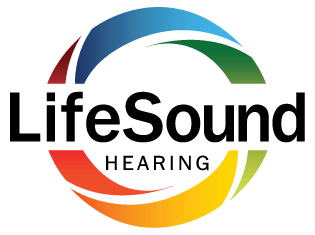
At its core, Thanksgiving revolves around shared meals, loved ones, and engaging in conversation. A loved one with hearing loss, though seated by caring family, can often feel disconnected during the meal.
While one might hesitate, a holiday setting is often an ideal, supportive time to begin a sensitive conversation about hearing health.
The Reasons Thanksgiving Provides a Appropriate Time for This Talk
Mealtimes are when family members share narratives, tell humorous anecdotes, and exchange recent developments. Unfortunately, for individuals whose hearing loss is untreated, this setting often proves to be challenging and isolating. Thanksgiving is an opportune moment to gently voice your concerns and offer support if you’ve seen a loved one avoiding conversation, often asking others to repeat themselves, or making more errors in hearing.
A key benefit is that their most trusted people are present, which helps them feel encouraged instead of criticized.
Steps to modify the environment for less challenging communication
Prior to beginning this discussion, making minor adjustments to the setting can significantly improve your loved one’s comfort and confidence during the holiday celebration.
- Reduce background noise. Keep background noise to a minimum; this means keeping the TV or music volume low.
- Be mindful of where you place them. Seat your loved one near the table’s center or close to family members they easily converse with.
- Ensure good lighting, as well-lit areas allow people with hearing loss to more easily observe lip and facial movements.
- Inform close relatives privately that you plan to discuss the topic supportively so they can offer empathetic support.
Applying these straightforward adjustments will ease communication barriers and help reduce the emotional pressure of talking about health.
How to approach the topic without causing discomfort
For a successful discussion, approach the topic with care rather than a desire to correct or fix. Try not to make the talk sound like a demand for immediate action or correction. Gently state that you’ve noticed their hearing difficulties and offer help, making it clear that you are not criticizing.
“I appreciate us spending time together, and my hope is that you can fully participate. It seems like you have trouble catching everything sometimes. Have you considered scheduling a hearing evaluation?”
Allow them to speak and offer a response. They may feel a sense of ease that someone noticed, or they may reject the suggestion. Don’t force the issue no matter what their response is. Offer your support and bring it up again if needed.
tips for giving encouragement and useful resources
If they seem willing to look into solutions, you should be prepared with some non-intimidating and helpful recommendations.
- Discuss hearing evaluations, clarifying that a hearing test is an easy and non-invasive procedure.
- Normalize the idea by comparing hearing aids to glasses; both are tools that improve quality of life without negative stigma.
- Underline the advantages: improved relationships, reduced stress levels, and a boost in self-assurance are all outcomes of better hearing.
You shouldn’t aim to resolve the entire situation in a single talk. The purpose is to plant the initial seed of support that can flourish over time.
A holiday of gratitude, and a step toward better hearing
The spirit of Thanksgiving is centered on being grateful for our loved ones, and this sometimes involves having necessary discussions that ultimately improve their lives. Though bringing up hearing loss initially causes discomfort, discussing it in a supportive, familiar place can make your loved one feel supported, recognized, and motivated to act.
Take this Thanksgiving as the moment to start the conversation if you have a loved one dealing with hearing issues. It might just lead to a significant difference.

